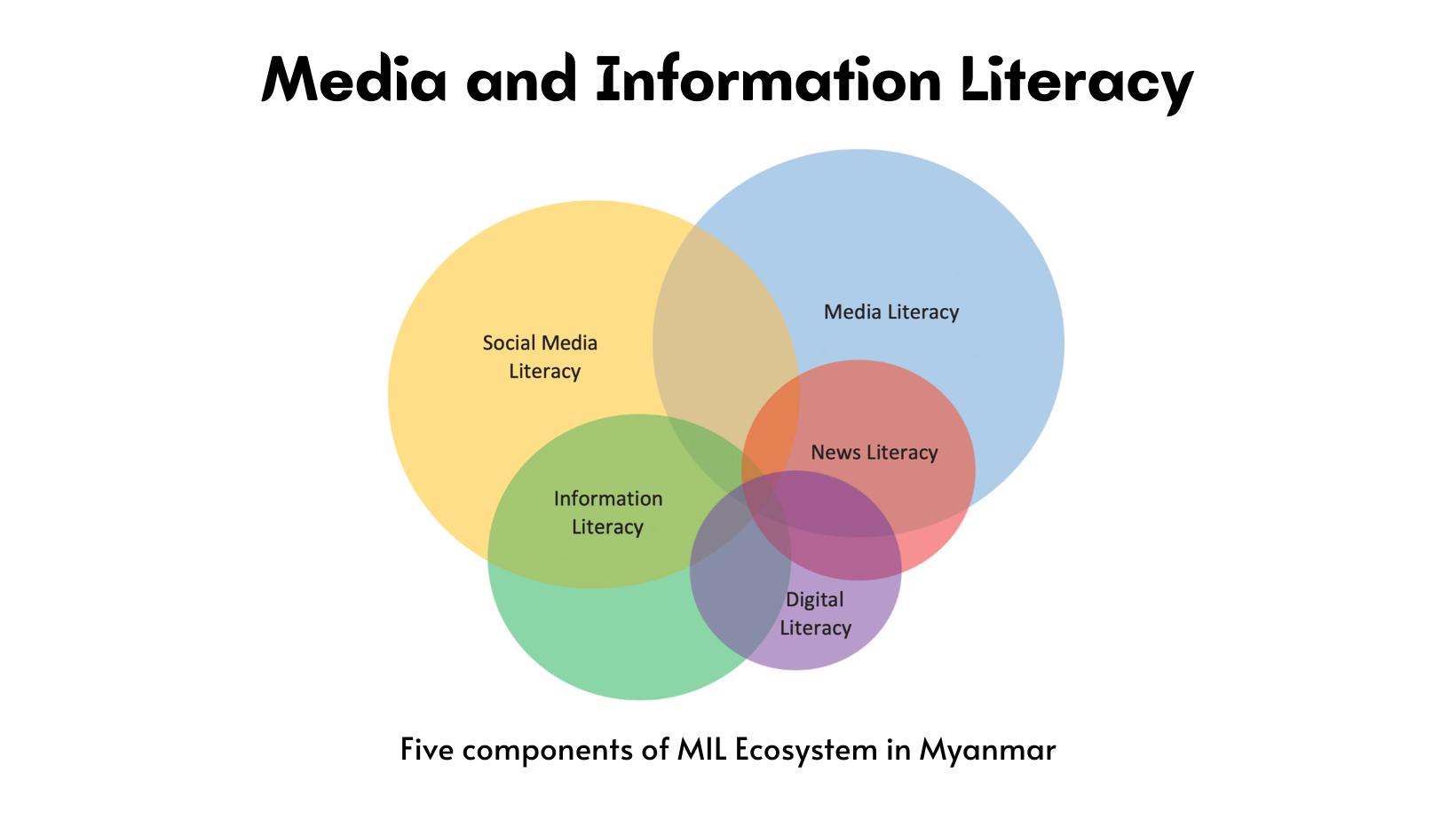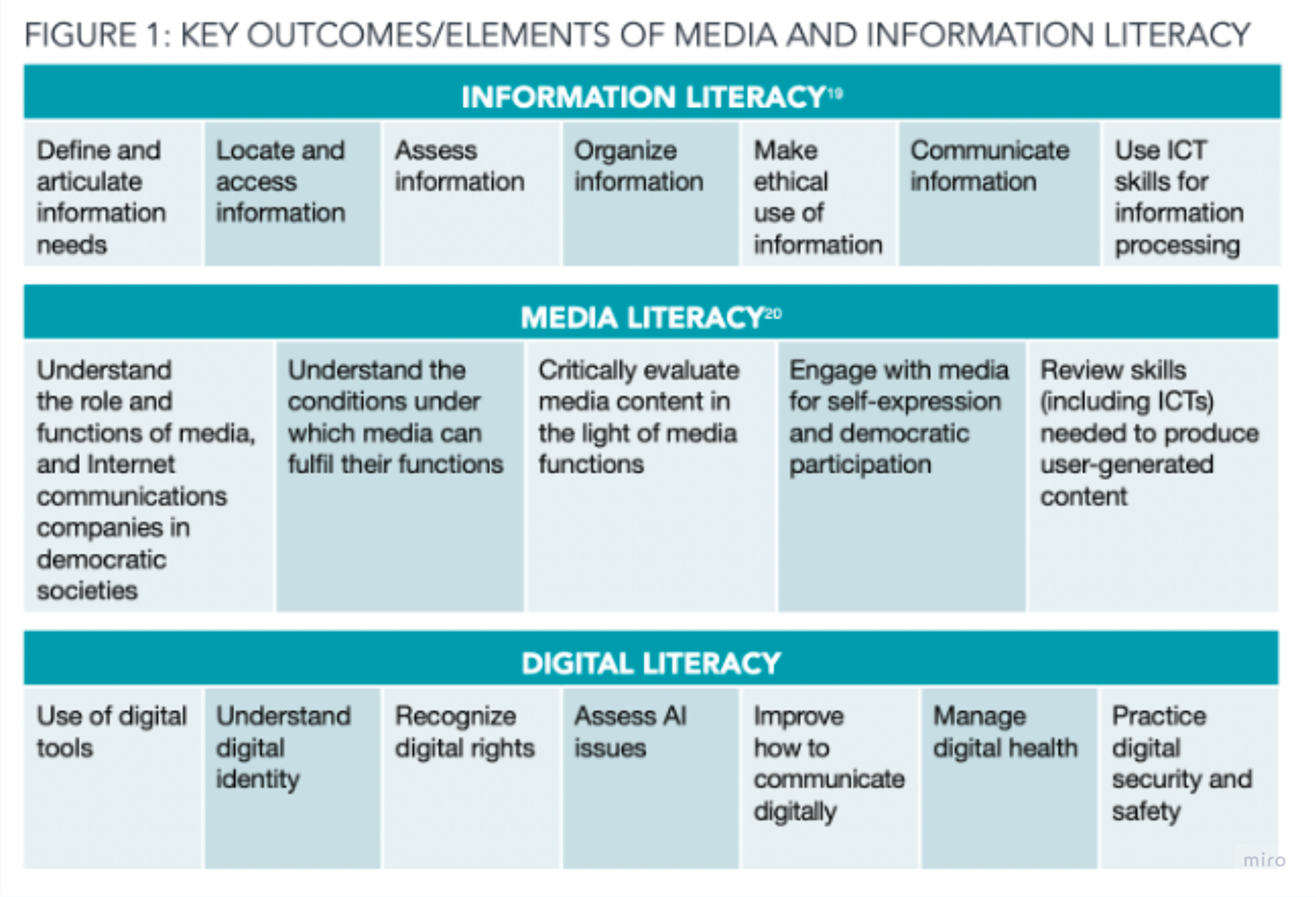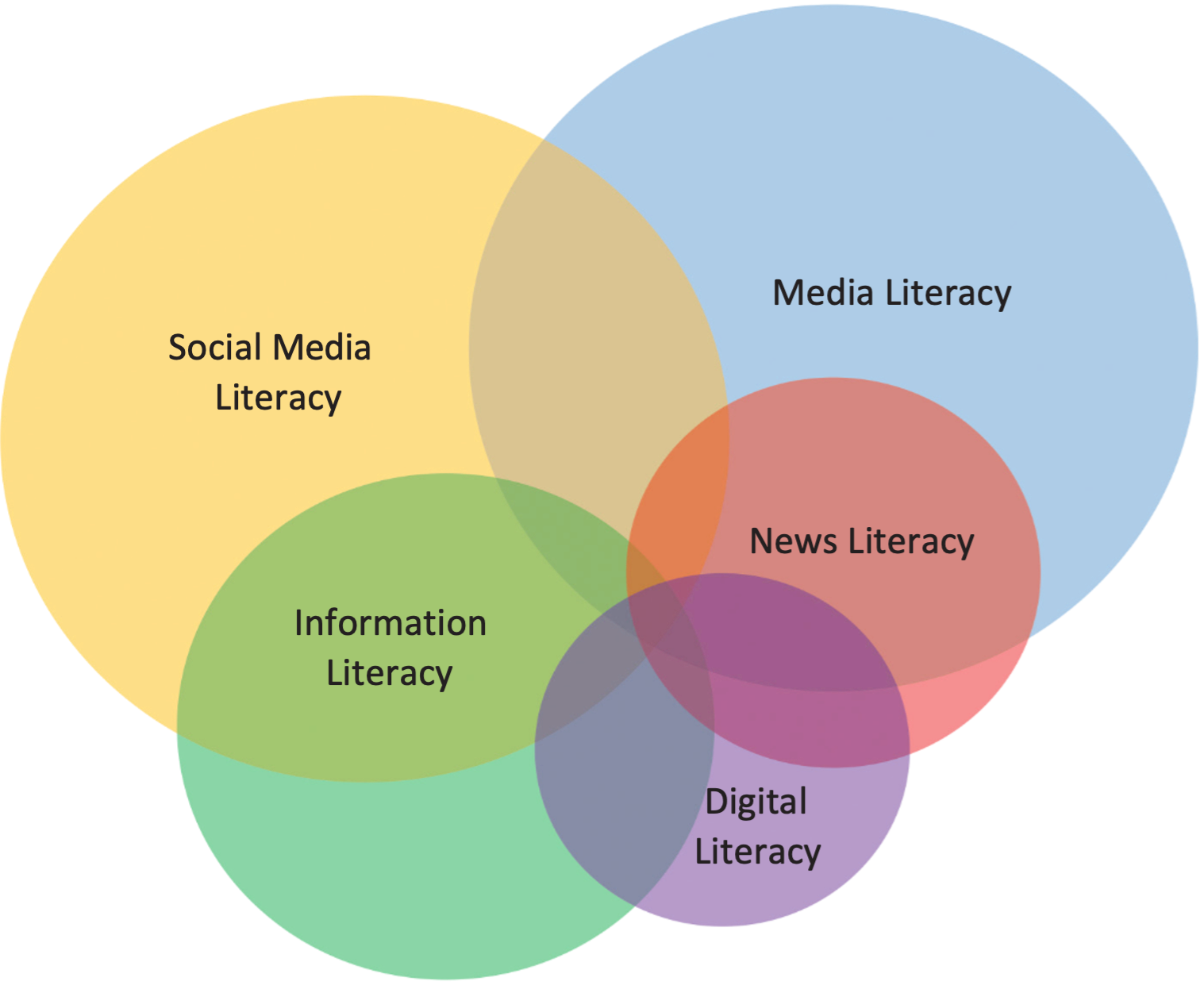Media and Information Literacy (with focus on Digital Literacy)
3.8
(4 မှတ်ချက်)
Certified
6 hour(s)
163 စာရင်းသွင်းထားသူဦးရေ
4418 ကြည့်ရှုထားသူဦးရေ

Share On :
သင်တန်းအကြောင်းအရာ ဖော်ပြချက်
The MIL Competency Framework for Myanmar[1] defines digital literacy as the ability to communicate or find information from the Internet or online. Digital literacy does not only cover technical competencies. Equally important, it encompasses appropriate attitudes and values which ensure that digital literacy is practiced for the common good. In effect, learners are able to reach a ‘critical consciousness[2]’, i.e. to identify and then to take action against the oppressive elements of their digital realities. Figure 1 below, from Media and Information Literate Citizens: Think Critically, Click Wisely! (UNESCO, 2021, p. 9), shows the key outcomes for learners on Media and Information Literacy courses.
Recognizing the need for digital literacy among teachers in Myanmar, UNESCO has provided a standalone MOOC on MIL and Digital Literacy package including five modules of work. The primary intended users for the proposed MOOC on Digital Literacy are educators in different classroom settings across the country. As the focus is on developing competencies in each of the priority elements of the MIL Ecosystem for Myanmar – knowledge, skills, attitudes and their effective application - the MOOC has been designed according to experiential learning principles. Where new concepts are learnt, they are then applied in the context of a teaching and learning situation, and then reflected on.
[1] UNESCO Yangon Project Office. (2020). Towards a Media and Information Literacy Competency Framework. Retrieved from: https://unesdoc.unesco.org/ark:/48223/pf0000374230
[2] Freire, P. (1970). Pedagogy of the Oppressed. New York: Continuum.

သင်တန်းရည်ရွယ်ချက်များ
The five MOOC modules on Media and Information Literacy and Digital Literacy aim to ensure the intended users become media and information literate and become responsible digital citizens whom are able to think critically of online content and the information they receive. Following two workshops conducted by UNESCO Myanmar informing the development of the MIL Framework for Myanmar, five components of the MIL ecosystem were prioritized[1], including social media literacy, media literacy, news literacy, digital literacy, and information literacy.

Figure 2: Five components of the MIL Ecosystem in Myanmar.
[1] Digital
Literacy in Media and Information Literacy by Ramon R. Tuazon, UNESCO Myanmar
Office
သင်ယူမှုရလဒ်များ
The learning objectives for the five modules for educators from different settings across Myanmar are therefore summarized in the table below:
Module I: Digital Literacy
- Understand digital literacy
- Use different digital devices, tools, platforms and applications for collaboration and communication
- Understand the importance of digital rights and the protection of intellectual property
Module II: Social Media Literacy
- Understand the specificity of social media as a communication environment
- Understand how communication works on social media platforms and how people are involved in it
- Use social media in a safe and ethical way
Module III: Information Disorder
- Understand what information disorder is
- Understand the difference between misinformation, disinformation and mal-information
Module IV: Critical Consumption of Information
- Understand the importance of verifying information and the influence that our own biases have over what we believe is credible
- Use verification and fact-checking techniques and tools
Module V: Privacy and Security
- Understand the threats and risks of using and engaging with the internet
- Understand how to take preventive measures for privacy and security
- Use strategies of main privacy management functions to manage personal information and protect users, especially minors
In terms of development of key values and attitudes, the learning objectives focus specifically on freedom of expression, freedom of information, freedom of participation, understanding of international human rights standards, tolerance and respect of others, awareness of self and value of challenging one’s own beliefs.
ဤသင်တန်းကိုတက်ရောက်ရန် စနစ်သို့ဝင်ပါ
သင်ကြားပို့ချချက်များ
Module 1: Digital Literacy
Summary 1: Digital Literacy
Summary 2: Digital Literacy
Module 2: Social Media Literacy
Summary 1: Social Media Literacy
Summary 2: Social Media Literacy
Module 3: Information Disorder
Summary: Information Disorder
Module 4: Critical Consumption of Information
Summary: Critical Consumption of Information
Module 5: Privacy and Security
Summary: Privacy and Security
သက်ဆိုင်သော သင်တန်းများ
